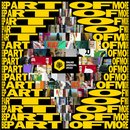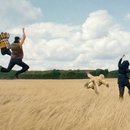Become a Music Video Director
Tips on how to become a Music Video Director from directors who have worked with the likes of Ariana Grande and The Weeknd

Music videos have been a constant cultural force since their arrival in the 1980s, and in today’s multimedia landscape, a great music video still has the power to start conversations and express an artist’s creative vision on a grand scale.
Directing music videos is a job that can be glamorous and exciting, with a lot of creative control, artist access and big responsibilities — but how do you get into it? It’s a career path that doesn’t always have a traditional entry point, with many top directors getting their start as photographers or producers. Once you’ve had practical real-world experience on set, it’s a question of developing a personal style, as well as making and maintaining those all-important contacts in the world of music and pop culture.
Successful music video directors are in demand by the world’s top artists, regarded as true collaborators and can be handed big production budgets. It’s a tough gig to land, requiring a cool head under pressure as well as great people skills, production expertise, and creative vision, but that doesn’t mean it’s impossible. We spoke to some of the top directors working in music video production today about their tips on breaking into this exciting career.
Immerse yourself in the world of film and video
If you’re interested in directing music videos, you’re probably already well versed in their history and language. But a robust knowledge of music videos from the past and the present is key to developing your own work, too. As Arnaud Bresson of DIVISION, who has directed videos for Kanye West and Flatbush Zombies, explains, ideas don’t come from nowhere. “You can learn to understand what a real idea means by watching the legendary music videos that were made in the past,” says Bresson. “Often, each idea can be summed up in one simple sentence. Once you have your idea, you have to constantly keep it in mind so you don’t lose sight of it and try to push it to its maximum, find all the possible and feasible ideas in this same idea.”
Raul ‘RJ’ Sanchez — one half of directing duo Cliqua (Somesuch), who have shot videos for The Weeknd and Rosalia among others — says your research shouldn’t end with music videos, either. Any kind of film you love and find interesting can fuel your ideas and your directing style. “[My directing partner Pasqual Gutierrez and I] love genre films, and we approach most of what we do through that lens,” he says. “We take inspiration from the cinema we love and apply it to our films.”
Get into the action, any way you can
There’s no one clear path into directing music videos, which means it’s crucial to get hands-on experience however you’re able to. Hannah Lux Davis, who directed ‘thank u, next’ for Ariana Grande and Charli XCX’s ‘Good Ones’ among others, had an unconventional journey after film school. “I was determined to find a way onto sets so I could continue to learn and immerse myself in the world of filmmaking,” she explains. “I started working as a makeup artist on different videos. I was simultaneously editing some of the videos I was doing makeup for, and it was the knowledge I gained through observation and the network I built on those sets that opened the doors to where I am today.”
Bresson also tried to find any route he could into the world of production. He began his career as an intern at DIVISION, the production company he still works with. This, he says, was his education in music videos. “Back then, DIVISION was a smaller production mainly focused on making music videos. So when you were an intern in a small production like DIVISION, you were part of a real family — close to the directors, producers, and constantly asked to do lots of things, help the art department to paint a guitar, go on Instagram to find new talent to get them cast, go retrieve a car two hours from Paris. That was my real school; you’re in the heart of the action and it is in this energy that everything begins.”
Do your own prep work from start to finish
While we may picture a music video director standing around on a set and calling the shots, there’s a lot of preparation that goes into those shoot days. Pasqual Gutierrez of Cliqua says it’s all about the work you do around the production itself. “A lot of the time in the music video world, a pretty-looking treatment can be enough to get you through the door, but the real key is doing as much prep as possible prior to the shoot,” he says. “We always make animatics and do boards for our music videos, and we try to get speaking with our keys as soon as possible. It doesn’t matter what stage of your career you’re in, music video sets are always a bit of a toss-up and many things can change on the day. The more you’re prepared, the better you can adapt to the changes you’ll face.”
Your network is your trump card
Unless you’re the talented best friend of a famous musician, you’re going to have to network to make connections in the music video world. Olivia Rose has directed videos for the likes of Stormzy, Jorja Smith and Ty Dolla Sign, and she says that networking is essential. “We live in the era of social media and connecting with people has never been easier,” she says. “Do your research and start to build a network of relevant crew members - from cinematographers to stylists to steadicam ops, and always reach out if you like someone's work. Nine times out of ten, it will come to nothing, but that one person in ten might be one step away from the client of your dreams, or be as into your work as you are to theirs. This is a career of teamwork. The more friendships and connections you have, the more your name will come up in the right circles and conversations.”
Lux Davis agree “Never say no to helping someone with a favour,” she says. “This entire industry is built on connections and the most valuable tool you have as a director is your network. No matter how big or small the project, always say yes and have a can-do attitude about getting your hands dirty. For all you know, the person you randomly helped transport set pieces may be the same one to give you your first big video.”
Get more advice and tips from professional creatives and learn how you can land the creative job of your dreams.



